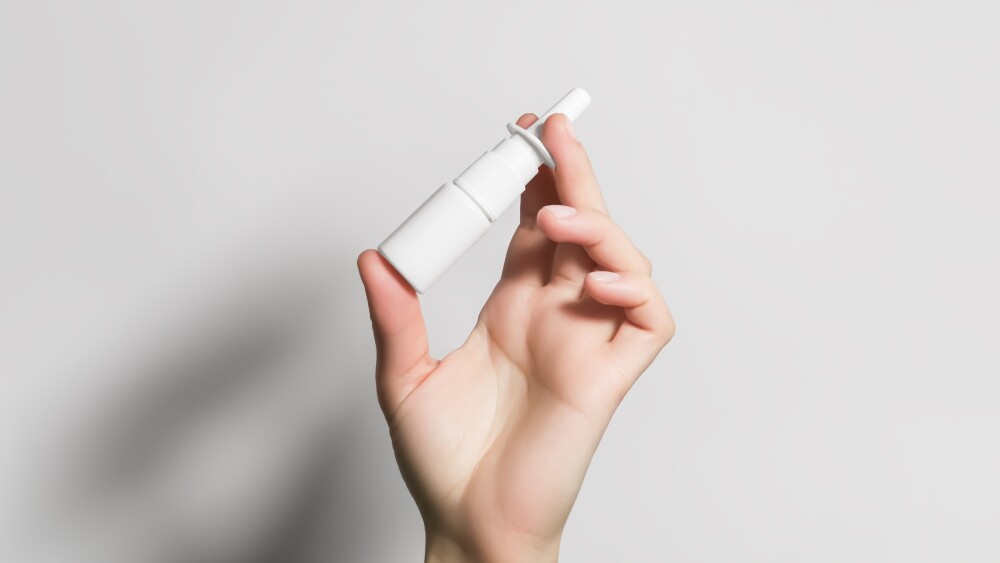Data show glioblastoma patients who received Optune in combination with bevacizumab at first recurrence lived longer than patients who received bevacizumab alone
ST. HELIER, Jersey--(BUSINESS WIRE)--Novocure (NASDAQ:NVCR) announced today that data from a post hoc analysis of the EF-14 pivotal phase 3 clinical trial of Optune in combination with temozolomide for the treatment of newly diagnosed glioblastoma (GBM) have been published in CNS Oncology. The objective of the pre-specified post hoc analysis was to evaluate the efficacy and safety of Optune when added to physician’s best choice second-line treatment after first disease recurrence among patients enrolled in the EF-14 trial.
“Taken in conjunction with the previously reported benefits with TTFields for newly diagnosed GBM in the EF-14 interim analysis, these results support the early initiation and continued use of Optune in combination with standard systemic therapies for the treatment of GBM”
The analysis shows that the median overall survival of patients treated with Optune in combination with physician’s best choice second line chemotherapy increased by 28 percent compared to patients treated with physician’s best choice second line chemotherapy alone from 9.2 months to 11.8 months (HR= 0.70, p= 0.049). Bevacizumab, alone or in combination with chemotherapy, was the most frequently used second-line treatment. The analysis also shows that the median overall survival of patients treated with Optune in combination with bevacizumab increased by 31 percent compared to patients treated with bevacizumab alone from 9.0 months to 11.8 months (HR=0.61, p= 0.043).
“Taken in conjunction with the previously reported benefits with TTFields for newly diagnosed GBM in the EF-14 interim analysis, these results support the early initiation and continued use of Optune in combination with standard systemic therapies for the treatment of GBM,” said Santosh Kesari, a trial investigator and Chair of Translational Neurosciences and Neurotherapeutics at John Wayne Cancer Institute and Director of Neuro-oncology at the Pacific Neuroscience Institute at Providence Saint John’s Health Center in Santa Monica, California. “The publication of these data adds to the growing body of evidence around Optune’s efficacy and supports the incorporation of Optune as a combination treatment for patients with glioblastoma.”
About Novocure
Novocure is an oncology company developing a profoundly different cancer treatment centered on a proprietary therapy called TTFields, the use of electric fields tuned to specific frequencies to disrupt solid tumor cancer cell division. Novocure’s commercialized product, Optune, is approved for the treatment of adult patients with glioblastoma. Novocure has ongoing or completed clinical trials investigating TTFields in brain metastases, non-small cell lung cancer, pancreatic cancer, ovarian cancer and mesothelioma.
Headquartered in Jersey, Novocure has U.S. operations in Portsmouth, New Hampshire, Malvern, Pennsylvania, and New York City. Additionally, the company has offices in Germany, Switzerland and Japan, and a research center in Israel. For additional information about the company, please visit www.novocure.com or follow us at www.twitter.com/novocure.
Approved Indications
Optune is intended as a treatment for adult patients (22 years of age or older) with histologically-confirmed glioblastoma multiforme (GBM).
Optune with temozolomide is indicated for the treatment of adult patients with newly diagnosed, supratentorial glioblastoma following maximal debulking surgery and completion of radiation therapy together with concomitant standard of care chemotherapy.
For the treatment of recurrent GBM, Optune is indicated following histologically-or radiologically-confirmed recurrence in the supratentorial region of the brain after receiving chemotherapy. The device is intended to be used as a monotherapy, and is intended as an alternative to standard medical therapy for GBM after surgical and radiation options have been exhausted.
Important Safety Information
Contraindications: Do not use Optune if you have an active implanted medical device, a skull defect (such as, missing bone with no replacement), or bullet fragments. Use of Optune together with implanted electronic devices has not been tested and may theoretically lead to malfunctioning of the implanted device. Use of Optune together with skull defects or bullet fragments has not been tested and may possibly lead to tissue damage or render Optune ineffective.
Do not use Optune if you are known to be sensitive to conductive hydrogels. In this case, skin contact with the gel used with Optune may commonly cause increased redness and itching, and rarely may even lead to severe allergic reactions such as shock and respiratory failure.
Warnings and Precautions: Use Optune only after receiving training from qualified personnel, such as your doctor, a nurse, or other medical personnel who have completed a training course given by Novocure (the device manufacturer).
Do not use Optune if you are pregnant, you think you might be pregnant or are trying to get pregnant. It is not known if Optune is safe or effective in these populations.
The most common (=10%) adverse events involving Optune in combination with temozolomide were low blood platelet count, nausea, constipation, vomiting, fatigue, scalp irritation from device use, headache, convulsions, and depression.
The most common (=10%) adverse events seen when using Optune alone were scalp irritation from device use and headache.
The following adverse reactions were considered related to Optune when using the device alone: scalp irritation from device use, headache, malaise, muscle twitching, fall and skin ulcer.
All servicing procedures must be performed by qualified and trained personnel.
Do not use any parts that do not come with the Optune Treatment Kit, or that were not sent to you by the device manufacturer or given to you by your doctor.
Do not wet the device or transducer arrays.
If you have an underlying serious skin condition on the scalp, discuss with your doctor whether this may prevent or temporarily interfere with Optune treatment.
Please see http://www.optune.com/safety to see the Optune Instructions For Use (IFU) for complete information regarding the device’s indications, contraindications, warnings, and precautions.
Forward-Looking Statements
In addition to historical facts or statements of current condition, this press release may contain forward-looking statements. Forward-looking statements provide Novocure’s current expectations or forecasts of future events. These may include statements regarding anticipated scientific progress on its research programs, development of potential products, interpretation of clinical results, prospects for regulatory approval, manufacturing development and capabilities, market prospects for its products, and other statements regarding matters that are not historical facts. You may identify some of these forward-looking statements by the use of words in the statements such as “anticipate,” “estimate,” “expect,” “project,” “intend,” “plan,” “believe” or other words and terms of similar meaning. Novocure’s performance and financial results could differ materially from those reflected in these forward-looking statements due to general financial, economic, regulatory and political conditions as well as more specific risks and uncertainties facing Novocure such as those set forth in its Annual Report on Form 10-K filed on February 23, 2017, with the U.S. Securities and Exchange Commission. Given these risks and uncertainties, any or all of these forward-looking statements may prove to be incorrect. Therefore, you should not rely on any such factors or forward-looking statements. Furthermore, Novocure does not intend to update publicly any forward-looking statement, except as required by law. Any forward-looking statements herein speak only as of the date hereof. The Private Securities Litigation Reform Act of 1995 permits this discussion.
Media and Investors:
Novocure
Ashley Cordova,
212-767-7558
acordova@novocure.com




